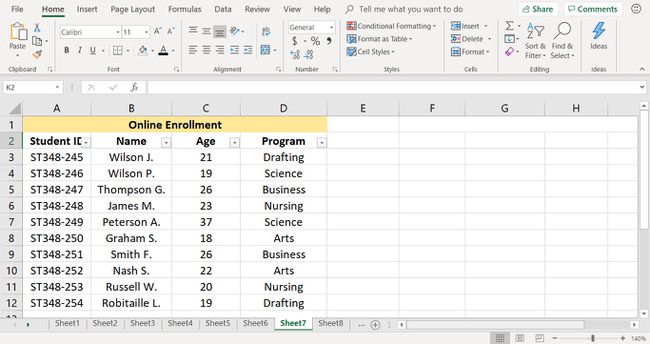3 Simple Steps to Create New Sheets in Excel

One of the most basic yet essential skills in Microsoft Excel is creating new sheets within a workbook. Whether you're compiling data, organizing information, or simply tracking different aspects of your project, knowing how to add new sheets efficiently can save time and streamline your work process. In this blog post, we'll go through three simple steps to create new sheets in Excel, ensuring that both beginners and experienced users can enhance their productivity.
Step 1: Understanding Excel's Workbook and Sheets

Before we dive into the steps, let's ensure we understand the basics:
- Workbook: The entire Excel file, which contains multiple sheets.
- Sheet: A single page within a workbook where you can input data.
When you open Excel, you typically see three sheets by default, labeled Sheet1, Sheet2, and Sheet3.
✨ Note: Excel's default number of sheets can be changed in Excel Options.
Step 2: Adding a New Sheet in Excel

Here's how to add a new sheet:
- Right-click on any of the existing sheet tabs at the bottom of the Excel window.
- From the context menu, select Insert...
- In the dialog box that appears, choose the type of sheet you want to insert. For this tutorial, we'll choose Worksheet and click OK.
This method works for most Excel versions. However, if you're using Excel for the web, the process might differ slightly:
- Click on the "+" icon next to the last tab at the bottom.
- The new sheet will be created with a default name like Sheet4, Sheet5, etc.
💡 Note: You can quickly add a new sheet by pressing Shift + F11 on your keyboard.
Step 3: Customizing Your New Sheet

Once you've added a new sheet, consider customizing it:
- Rename the Sheet: Right-click on the tab, select Rename, and type in a new name. Choose a name that indicates the sheet's content for easy reference.
- Color Code the Sheet: Right-click on the tab again, choose Tab Color, and pick a color. This can help in organizing sheets visually.
| Action | Keyboard Shortcut |
|---|---|
| Insert New Sheet | Shift + F11 |
| Rename Sheet | Double-click the sheet tab |
| Change Sheet Color | Alt + F, then press T, C for tab color |

In summary, creating new sheets in Excel involves understanding the basic components of an Excel workbook, using straightforward methods to add sheets, and then customizing these sheets to better organize your work. By following these steps, you can effortlessly manage your data across multiple sheets, which can be particularly useful for complex projects or large data sets.
Can I add multiple sheets at once in Excel?

+
While there’s no native feature to add multiple sheets at once, you can use VBA scripting for this purpose. However, for manual operations, you’ll need to add them one by one.
What is the maximum number of sheets I can add in a workbook?

+
The theoretical limit is 255 sheets, but practical limitations like memory and Excel version might restrict you from reaching this number.
How can I quickly navigate between sheets?

+
Use the Ctrl + Page Up and Ctrl + Page Down keys to move between sheets quickly.